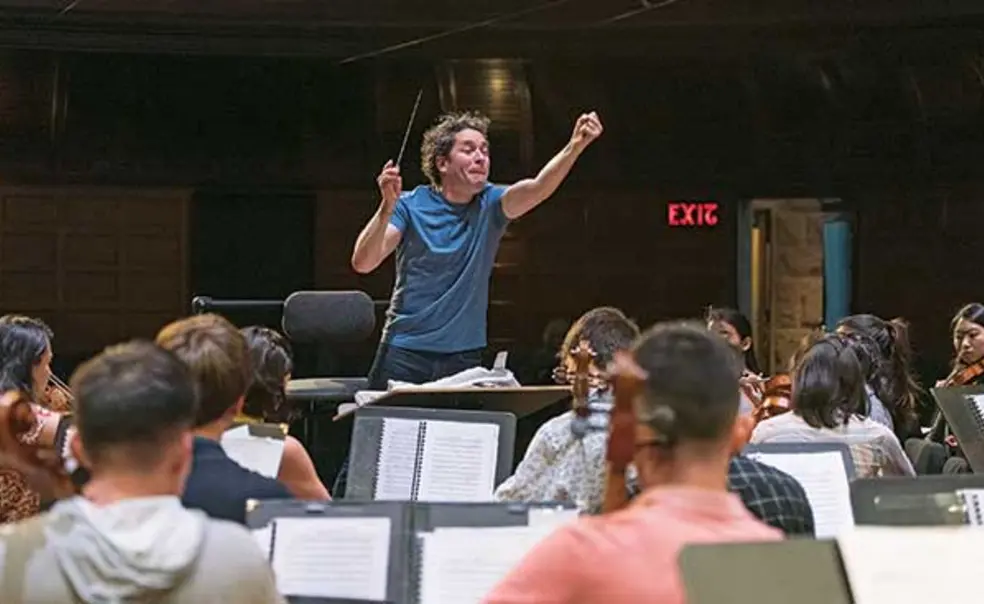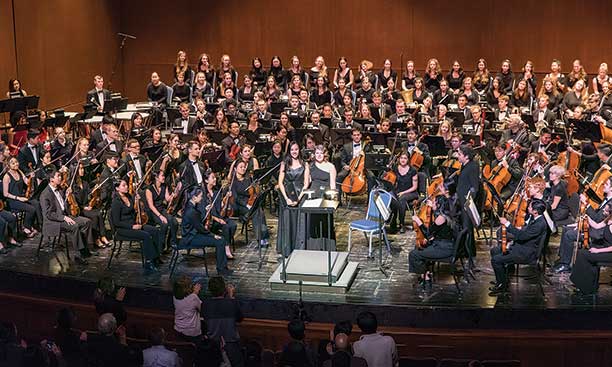Dudamel Residency Ends on High Note With Concerts in Princeton, Trenton
“The first note is the most important note,” Gustavo Dudamel announced to the University Orchestra and Glee Club at the beginning of their rehearsal in Richardson Auditorium.
Dudamel, the renowned music director of the Los Angeles Philharmonic and the Simón Bolívar Symphony Orchestra of Venezuela, was on campus for two performances in late April to culminate a yearlong residency celebrating the 125th anniversary of Princeton University Concerts. To prove his maxim, the maestro took the orchestra’s eight bass players through the opening bars of Schubert’s Gesang der Geister über den Wassern over and over again, for more than five minutes.
The piece begins with a low, pulsing murmur. To Dudamel’s ear, it was not low enough. Occasionally, he even put a finger to his lips. “Every note has meaning,” he told the musicians, stopping to explain how each small section of the score fit into a larger thematic story.
“[Musicians] are the ones making the sound. Without them, I can do nothing.” — Gustavo Dudamel
“It’s really important and you want to get it right,” bassist Andrea Reino ’20 acknowledged afterward. “[Playing quietly] can seem hesitant and uncertain, but that’s not what it was at all.”
A few minutes into the piece, when their entrance arrived, the violins did not fare much better. “That was good but ... too much,” Dudamel instructed them before beginning the section yet again.
The concerts, performed before packed houses at Richardson on April 26 and in Trenton the following day, were the final appearances of Dudamel’s residency. During other visits, he participated in talks, faculty panels, and film screenings. Emphasizing the important role the arts play in society, Dudamel also worked with elementary and high school students from Trenton, including those from an after-school group based on the El Sistema music education program that he had played in as a boy, which inspired him to become a conductor.
During a public conversation April 25 with visiting lecturer Fintan O’Toole, a columnist and critic, Dudamel explained a conductor’s relationship with his musicians. “The first thing you have to do is to listen. [Musicians] are the ones making the sound. Without them, I can do nothing.”
Dudamel demonstrated that collaboration in the concerts over the next two days. At the end of each performance, the maestro stepped from his podium to stand among the student musicians and singers as applause rained down.
This time, the sound that filled the auditorium was loud.













No responses yet